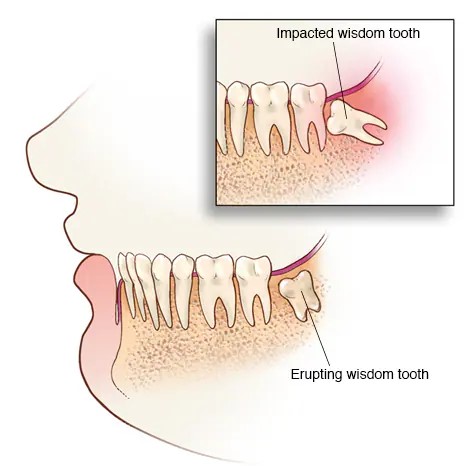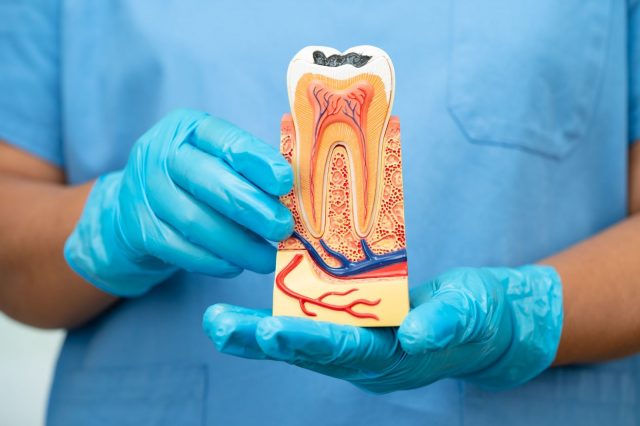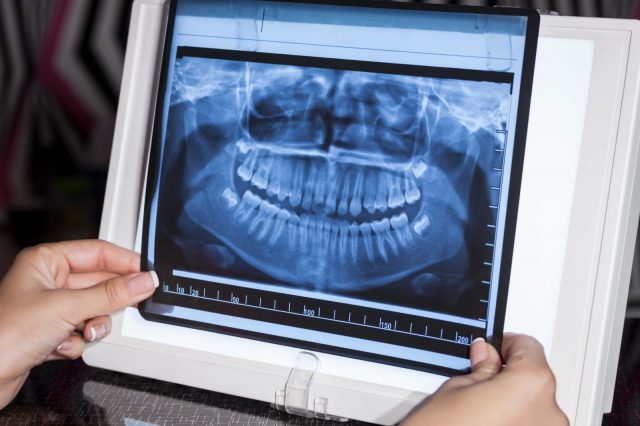Wisdom Tooth Surgery: All You Need to Know
Wisdom tooth surgery is a procedure to remove one or more of the third molars, typically when they are impacted, misaligned, or causing pain or other dental complications.
For many, wisdom tooth surgery becomes a necessary part of dental health, helping to prevent pain and complications. If you are considering wisdom tooth surgery, keep on reading as this article breaks down everything you need to know to help you every step of the way.
Understanding Wisdom Teeth
What Are Wisdom Teeth?
Wisdom teeth are the final set of molars, typically appearing in late adolescence or early adulthood. These teeth can emerge without issues for some people while others may never develop wisdom teeth at all, primarily due to genetics.
If someone has a larger jaw or optimal spacing, the wisdom teeth can align naturally without crowding. In other cases, the angle or size of the wisdom teeth themselves might allow them to fit comfortably without pressing against other teeth.
For many people, though, limited space, jaw size, or unusual growth angles create problems, leading to impacted or misaligned wisdom teeth that can cause discomfort and other dental complications.
(Source: Mayo Clinic)
What Happens When Wisdom Teeth Do Not Erupt Properly?
Impacted wisdom teeth can happen when there is not enough space in your mouth for them to grow outwards properly.
They may push against other teeth, get stuck under the gums, or grow at an angle. This can lead to problems like pain, swelling, or infections. In some cases, impacted wisdom teeth can damage nearby teeth or cause bigger issues, such as cysts or gum disease.
If left untreated, these problems may get worse, which is why many dentists recommend wisdom tooth surgery to prevent future complications.
(Source: Envato)
Is Wisdom Tooth Surgery Right for You?
Do You Need Wisdom Tooth Extraction?
If your wisdom teeth emerge properly and do not cause any pain or discomfort, there is no need for wisdom tooth surgery. However, if you do experience pain, swelling, or discomfort, it may be necessary to have them removed.
Leaving your wisdom teeth untreated can lead to several issues, such as:
- Crowding or Misalignment: Impacted or misaligned teeth can push against surrounding teeth, leading to crowding or bite problems.
- Periodontitis: If wisdom teeth do not fully emerge, they can trap bacteria, leading to infections and gum issues.
- Cavities: Wisdom teeth in hard-to-reach areas can be more difficult to clean, increasing the risk of cavities or tooth decay.
- Damage to Nearby Teeth: Misaligned wisdom teeth can damage the roots or enamel of neighbouring teeth.
Your dentist will assess your situation and help you decide if wisdom tooth surgery is necessary, ensuring you make an informed choice based on your specific needs.
Risks and Potential Complications
Wisdom tooth surgery is generally a safe procedure, but like any surgery, it comes with some risks. While most people recover without issues, it is important to be aware of potential complications that can arise.
Some of the more common risks include:
- Infection: As with any surgery, there is a small risk of infection at the site of the extraction. Your dentist will provide instructions on how to care for your mouth to minimise this risk.
- Dry Socket: This is a painful condition where the blood clot that forms in the empty tooth socket becomes dislodged. It can expose the bone and nerves, leading to discomfort. Dry socket is more likely to occur if you smoke or do not follow aftercare instructions carefully.
- Nerve Damage: In rare cases, wisdom tooth surgery can cause temporary nerve damage, leading to numbness or tingling in the tongue, lip, or chin. This usually resolves itself within a few weeks or months, but in very rare cases, it can be permanent.
- Swelling and Bruising: Some swelling and bruising around the area of the extraction is normal, but it should subside within a few days. Ice packs and over-the-counter pain medication can help manage these symptoms.
- Bleeding: While some bleeding is expected, excessive or prolonged bleeding may occur in rare instances. If this occurs, you should contact your dentist immediately.
Although these complications are uncommon, it is essential to follow your dentist’s instructions closely before and after surgery to reduce any risks.
(Source: Envato)
The Surgery Process
- Before Surgery
Before your wisdom tooth surgery, your dentist will assess your situation and may take X-rays to understand the position of your teeth. If needed, your dentist may prescribe you with antibiotics to prevent infection. - During Surgery
Wisdom tooth surgery is usually quick and typically takes under an hour. Depending on the complexity, you will either be given local anaesthesia (to numb the area), sedation or general anaesthesia (to put you to sleep).Your dentist will carefully remove the tooth, and in some cases, may need to make small cuts to access the tooth more easily. - After Surgery
After the procedure, your dentist will guide you on post-surgery care, and you may have some swelling and discomfort for a few days.
Pre-Surgery Preparation Tips
Preparing for your wisdom tooth surgery can make all the difference. Here is what you can do beforehand:
- Plan Comfortable Clothing
Wear loose, comfortable clothing to the appointment. Since the procedure will take some time, a cosy attire can help you feel more at ease. - Stock Up on Essentials
Before the big day, stock your kitchen with soft foods like yoghurt, mashed potatoes, soups, and smoothies. Having these on hand will make your recovery period much easier. You may also want to have ice packs ready to help manage swelling after surgery. - Communicate with Your Dentist
Talk to your dentist about any medications you are taking, allergies, or health concerns. They may provide specific instructions, such as adjusting medications or taking antibiotics before the procedure.
(Source: Envato)
Recovery and Aftercare
Recovery: What Not to Do
Most people recover within a week after wisdom tooth surgery. During the first 24 hours, it is important to rest and avoid certain actions as you may disrupt the healing process.
- Do not smoke: Smoking can slow down healing and increase the risk of infection.
- Do not chew on hard or crunchy foods: Stick to soft foods to avoid irritating the healing areas.
- Do not touch the surgical area: Avoid poking the extraction sites with your tongue or fingers, as it can cause irritation or introduce bacteria.
- Do not drink hot beverages: Hot drinks, like tea or coffee, can increase swelling and cause discomfort, especially in the first 24 hours.
- Avoid alcohol: Drinking alcohol can interfere with your pain medications and slow down the healing process, so it is best to steer clear of it.
- Avoid brushing directly on the surgery site: For the first few days, try to avoid brushing directly on the extraction site to prevent irritation or infection. You can gently brush your other teeth, but be careful around the surgical area.
Aftercare Tips
- Take Pain Relief Medication
Your dentist will provide medication to ease discomfort. Be sure to follow the prescribed dosage to manage the pain effectively. - Use Ice Packs
Apply an ice pack to the outside of your cheek for 15 to 20 minutes at a time during the first 48 hours. This helps reduce swelling and numb the area. After two days, you can switch to warm compresses for relief. - Rinse with Salt Water or Mouthwash
Starting 24 hours after surgery, gently rinse your mouth with warm salt water or an antibacterial mouthwash a few times a day. This helps clean the area and prevents infection. Avoid vigorous rinsing to protect the healing blood clot in the socket.
- Stick to Soft Foods
Choose soft, easy-to-eat options like mashed potatoes, yoghurt, soup, and smoothies. Refrain from eating hot, spicy, or crunchy foods that could aggravate the surgical site.
When to Call Your Dentist
Reach out to your dentist if you experience severe pain, prolonged bleeding, fever, or signs of infection. These may indicate a complication that requires prompt care.
Conclusion
Wisdom tooth surgery may seem daunting, but it is often a straightforward procedure with big benefits for oral health. By understanding the reasons, process, and recovery, you are already on the path to a confident, pain-free experience. Consult with your dentist and make an informed choice for a healthier smile.
Need wisdom tooth surgery in Singapore? Get in touch with The Braces Practice now!











